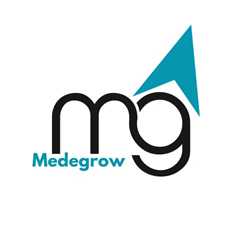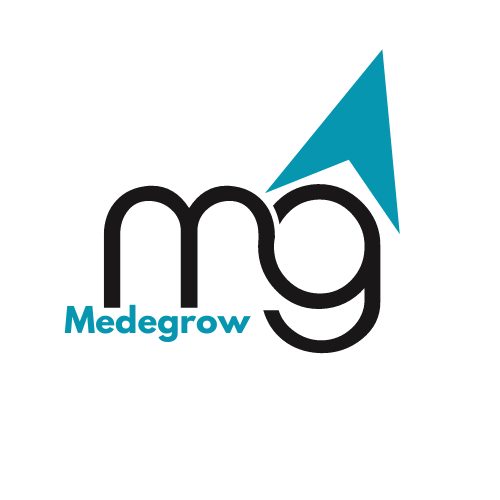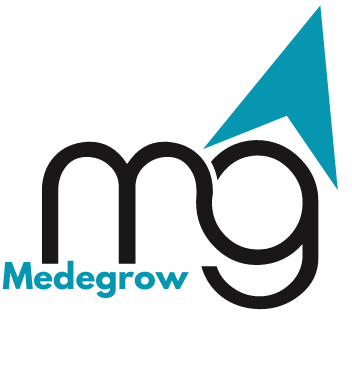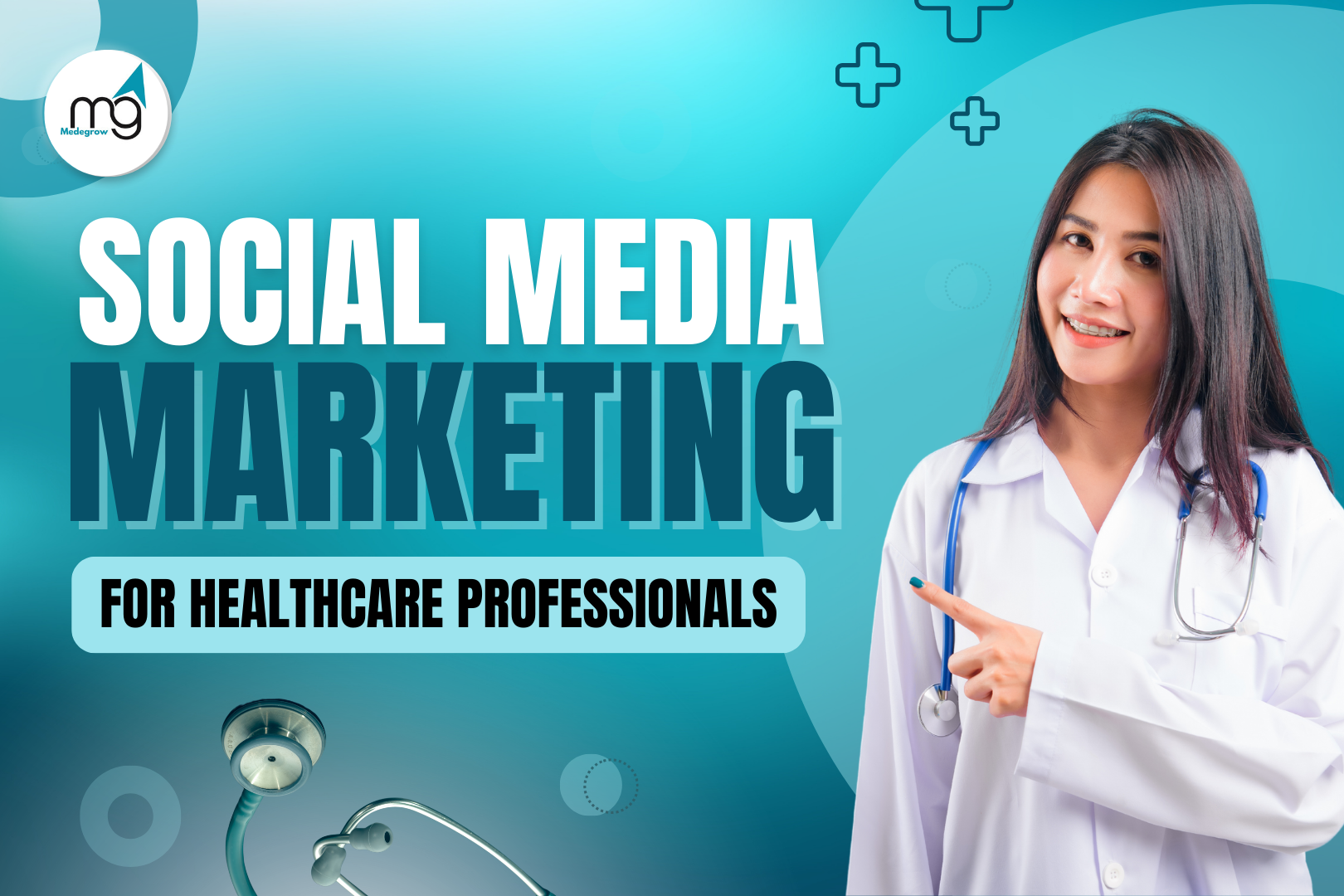
In today’s digital age, social media has become an indispensable tool for healthcare professionals to connect with patients, share valuable health information, and promote their services. The rise of digital platforms has transformed the way patients search for healthcare providers, making it crucial for doctors and clinic owners to have a strong online presence. This article explores the impact of social media marketing for healthcare professionals and provides actionable insights on how to harness its power effectively.
Importance of Social Media Marketing for Healthcare Professionals
Social media marketing enables doctors and clinics to engage with their audience beyond the confines of a physical location. With billions of users active on platforms like Facebook, Instagram, and LinkedIn, healthcare professionals can reach a broader audience, build trust, and position themselves as industry leaders.
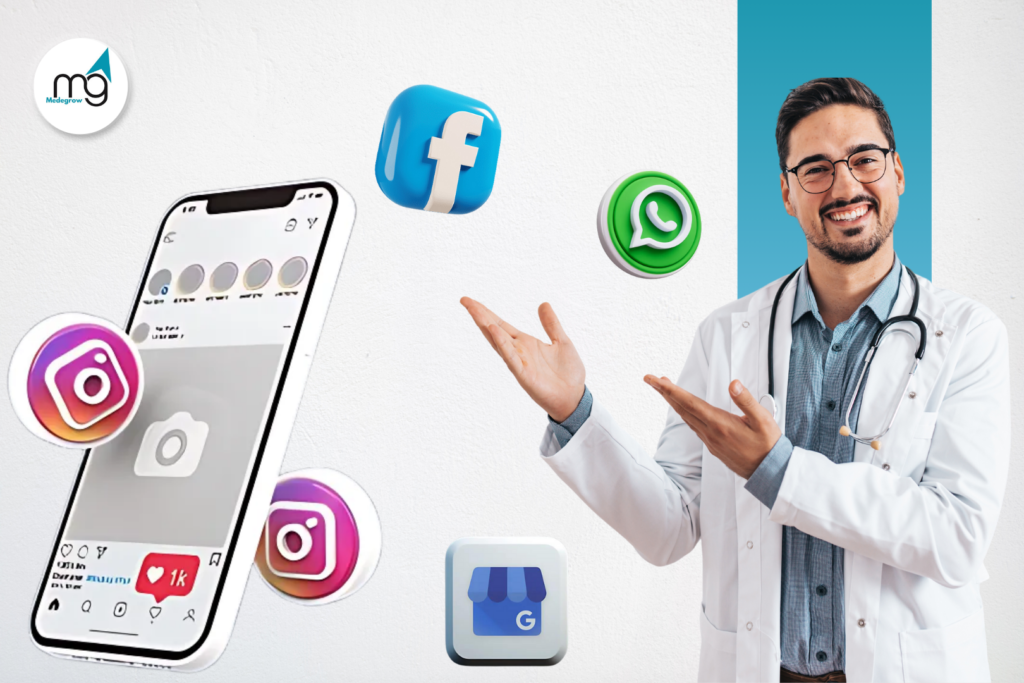
Statistics on Social Media Usage in Healthcare
Studies show that 60% of patients use social media to research healthcare providers before making decisions. Additionally, 40% of people said that information found on social media influences how they deal with their health. These statistics highlight the importance of a robust social media strategy for healthcare professionals.
Understanding Social Media Marketing for Healthcare Professionals
What is Social Media Marketing?
Social media marketing for healthcare professionals involves using platforms like Facebook, Instagram, LinkedIn, and Twitter to promote healthcare services, engage with patients, and build a strong online presence. This marketing approach includes creating content, running ads, and analyzing engagement to achieve business goals.
Specific Channels Relevant to Healthcare which will help in Social Media Marketing for Healthcare Professionals
Each social media platform serves a unique purpose for healthcare professionals:
- Facebook: Ideal for patient education and community building.
- Instagram: Best for visual content like images of your clinic, staff, and patient stories.
- LinkedIn: Perfect for professional networking and sharing thought leadership content.
- Twitter: Useful for sharing updates, news, and quick health tips.
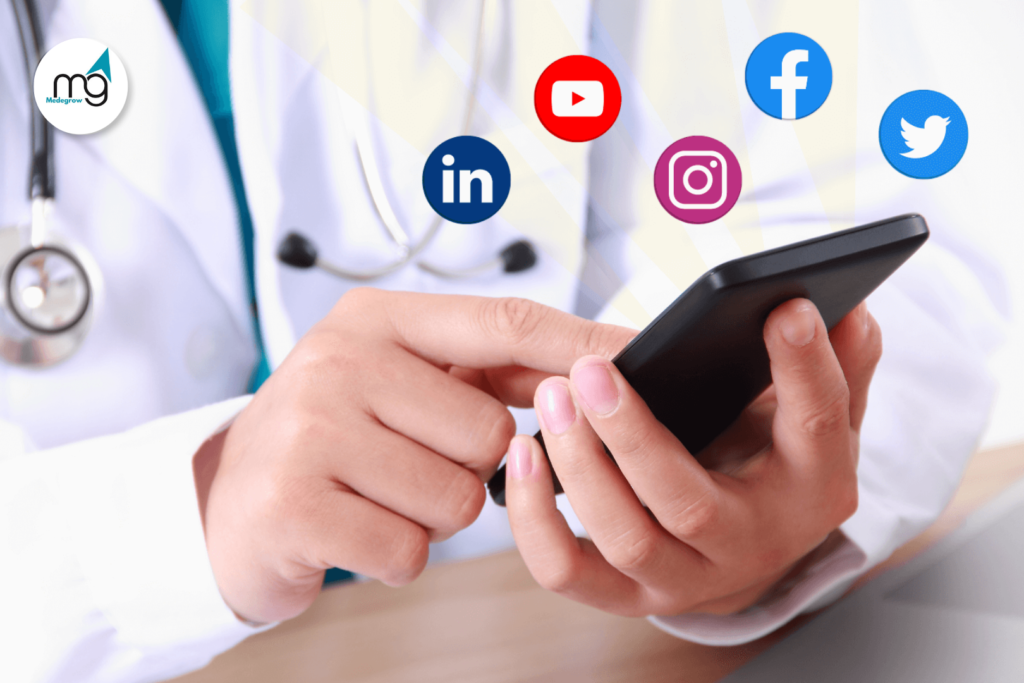
Importance of a Tailored Approach for Healthcare Professionals
Social media marketing for healthcare professionals is essential in a highly regulated industry like healthcare, where strategies must be carefully crafted to adhere to privacy regulations such as HIPAA. A tailored approach ensures that your social media marketing is effective, compliant, and resonates with your target audience.
Why is Social Media Marketing for Healthcare Professionals essential?
Building an Online Presence
In a world where patients turn to the internet for health information, visibility is key. A strong online presence on social media helps doctors stay top-of-mind and positions them as credible sources of health information.
Your online presence is your first handshake with patients—make it warm, welcoming, and informative.
Connecting with Patients
Social media provides a platform for doctors to engage with patients directly. Through social media marketing for healthcare professionals, posts, comments, and messages, doctors can respond to patient queries, share health tips, and create a community of engaged followers.

Promoting Services and Specialties
Social media is an excellent platform for highlighting specific services, treatments, and specialties. Sharing patient success stories and educational content can showcase your expertise and differentiate your clinic from competitors.
Key Strategies for Effective social media marketing for healthcare professionals
Developing a Comprehensive Social Media Strategy
Before diving into social media, it’s crucial to define your goals and target audience. Ask yourself:
- Who are you trying to reach?
- What are their pain points?
- What content will resonate with them?
By answering these questions, you can create a strategy that drives patient engagement and meets your marketing objectives.
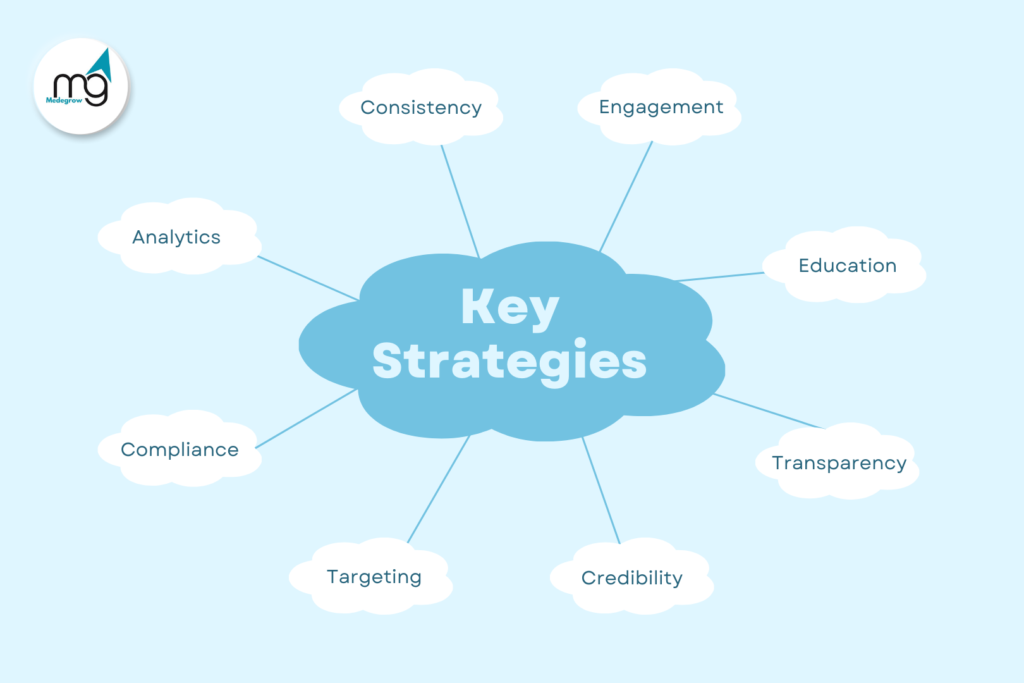
Content Creation and Curation
Creating and sharing high-quality content is essential for building a loyal following. Here’s what to consider:
- Types of Content to Share: Blog posts, videos, infographics, patient stories, and educational content.
- Incorporating Visuals and Multimedia: Use high-quality images, infographics, and videos to convey complex medical information in an engaging format.
- Educational Content: Informative posts build trust and establish you as an authority in your field.
Utilizing Paid Advertising on Social Media
Paid social media ads, such as Facebook and Instagram ads, can help expand your reach and target specific patient demographics. Here’s how to leverage them:
- Target Specific Demographics: Use ads to reach patients based on their age, location, health interests, and behaviors.
- Track and Analyze Ad Performance: Measure the effectiveness of your campaigns through metrics like click-through rates and conversions.
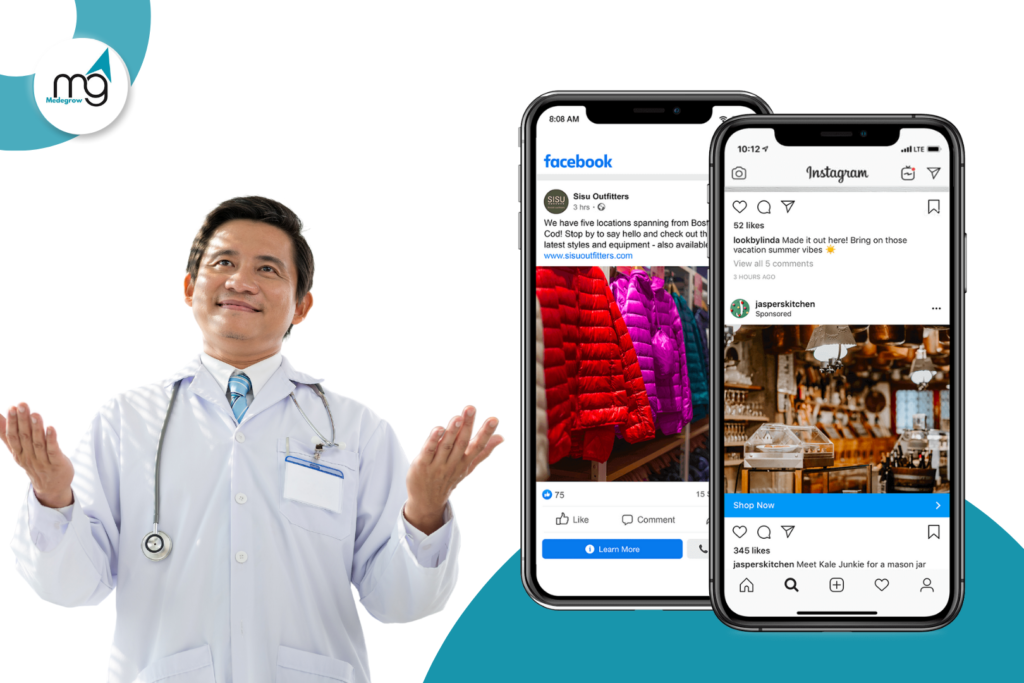
Engaging with Patients Through Social Media
Engagement is key to building relationships with your audience. Here are a few strategies:
- Respond Promptly: Reply to comments and messages to show you value patient interactions.
- Encourage Feedback: Ask patients to leave reviews and share their experiences.
- Host Live Q&A Sessions: Use live videos to address patient questions and share information on health topics.
Measuring Success: Analytics and Reporting
Tracking Key Metrics
To gauge the success of your social media efforts, track key performance indicators (KPIs) such as:
- Engagement Rates: Likes, comments, and shares.
- Follower Growth: Monitor how your audience is growing over time.
- Website Traffic: Use Google Analytics to see how many visitors come from your social media profiles.
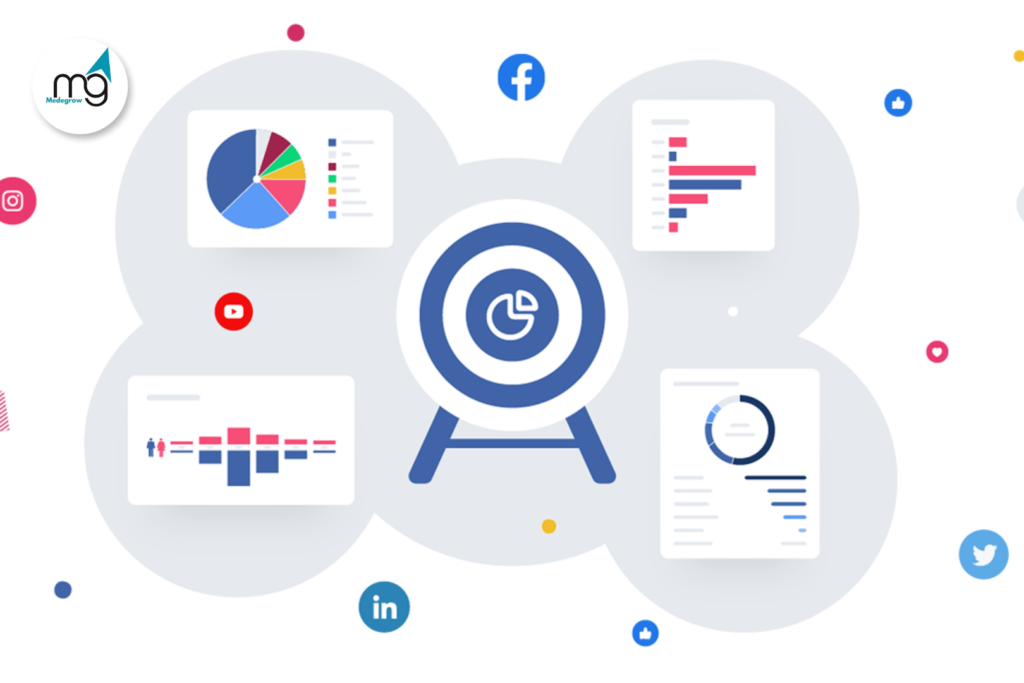
Adjusting Strategies Based on Analytics
Use data insights to refine your content strategy. If certain posts get more engagement, consider creating similar content through social media marketing for healthcare professionals. This data-driven approach ensures continuous improvement and better results over time.
Challenges in Social Media Marketing for Healthcare Professionals
Navigating Compliance and Regulations
Healthcare providers must be aware of compliance regulations like HIPAA, which protects patient privacy. Here are some strategies:
- Avoid Sharing Patient Information Without Consent: Never post personal patient details unless you have written consent.
- Monitor for Compliance: Regularly review your social media policies to ensure they comply with industry standards.
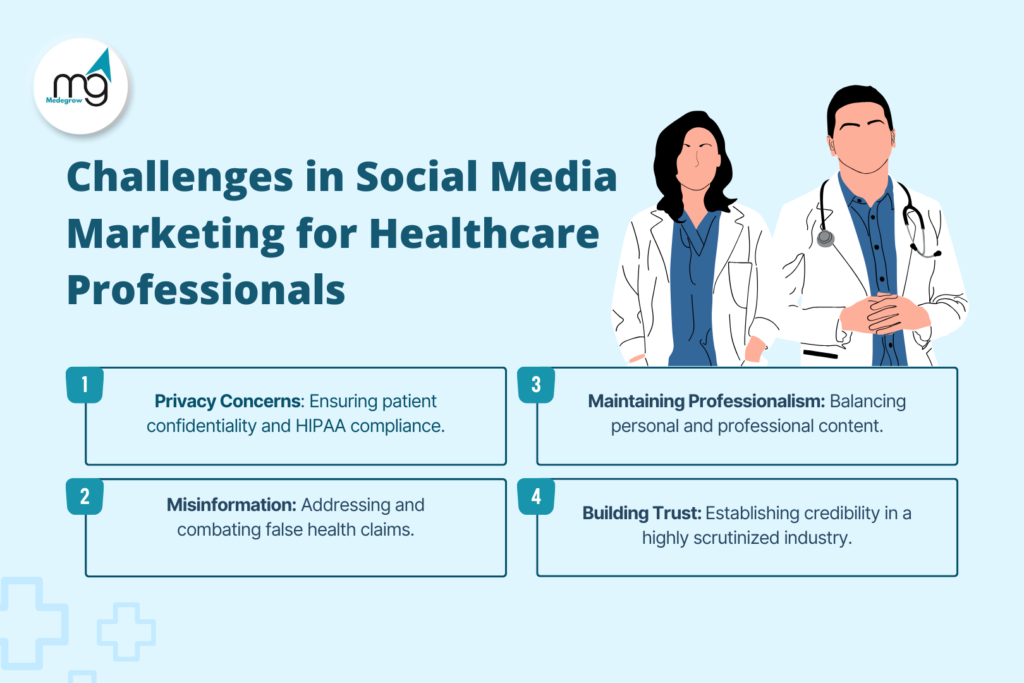
Overcoming Negative Feedback
Negative comments can impact your reputation if not handled properly. Here’s how to turn them into opportunities:
- Respond Professionally: Address concerns respectfully and offer solutions.
- Learn from Feedback: Use negative reviews as insights to improve your services.
Conclusion
Social media marketing is a powerful tool for healthcare professionals to grow their practices, connect with patients, and build trust in the community. By implementing the strategies outlined in this guide, doctors can enhance their online presence and attract more patients.
If you’re looking to leverage social media marketing for healthcare professionals to grow your clinic, consider partnering with a professional digital marketing agency that specializes in healthcare. Our team can create tailored strategies that meet your unique needs and ensure compliance with industry regulations.

FAQs
What is social media marketing for healthcare professionals?
Social media marketing involves using platforms like Facebook and Instagram to promote healthcare services, educate patients, and build an online community.
Why should I invest in social media marketing for my clinic?
Investing in social media marketing can increase your clinic’s visibility, engage more patients, and establish your practice as a leader in the community.
Which social media platforms are best for healthcare professionals?
acebook and Instagram are great for engaging with patients, while LinkedIn is ideal for professional networking and sharing thought leadership.
How do I measure the success of my social media marketing efforts?
Track metrics like engagement rates, website traffic, and follower growth to assess your performance.
How can I ensure compliance with healthcare regulations while using social media?
Avoid sharing patient information without consent and regularly review your content for HIPAA compliance.
What types of content should I post on my clinic’s social media profiles?
Post educational articles, patient testimonials, and health tips to engage your audience.
How often should I post on social media?
Maintain a consistent schedule, ideally posting 3-5 times a week to keep your audience engaged.
